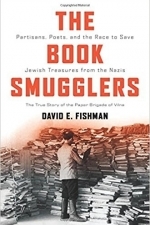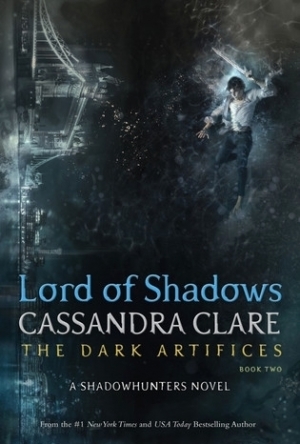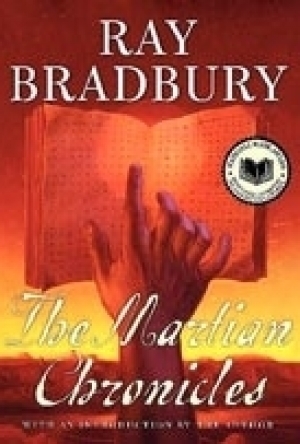Kyera (8 KP) rated Lord Of Shadows in Books
Jan 31, 2018
The storylines come together and diverge beautifully in this story, allowing each character to shine. Even though Julian and Emma are the main characters, we get to spend more time with the other Blackthorns, Kit, Cristina, Diana and the others. Each character grows over the course of the novel and we get to know them better. My heart goes out to Dru because although she has her family, she doesn’t have a best friend or someone to truly talk to – like Julian and Emma or Ty and Livvy. She clearly longs for that connection, or to at least be included more by her family and I think many can relate to that.
I loved getting to know Ty and Livvy more because they have such a unique and precious bond. It was also great to see Kit join in with their adventures, even though he is not new to the Shadow World he is new to being a Shadowhunter. They made him feel like part of the family and he understood Ty immediately in a way that most outsiders don’t take the time to. He fits in perfectly with them and I couldn’t wait to see how they would grow as a trio throughout the novel.
Mark has come into his own in this novel – the events he went through in Lady Midnight and with the Wild Hunt changed him, made him less sure of himself. Since he has been back with his family, he is learning to trust again and view himself as a Shadowhunter. He must reconcile his feelings about Kieran with the faerie’s betrayal in Lady Midnight, become more responsible and hopefully take some of the burdens off Julian.
Emma is dealing with the aftermath of discovering who killed her parents and why. As that pursuit has fueled her for the last five years, it’s a strange transition for her. It doesn’t help that her relationship with Julian is as complicated as ever. The two are battling with their emotions and letting it affect them as parabatai. The characters that Cassie has created are so real that you hurt when they hurt and just wish for a happy ending for all of them.
It was fantastic to see the cameos from some of the beloved characters we know from the other Shadowhunter Chronicles series. I personally miss them and always wonder what they’re up to now, how their lives are and what shenanigans they’re embroiled in. Cassie does not disappoint and the cameos were lengthy and detailed enough that I feel satisfied (although of course, I would be happy with several spin-off books chronicling their adventures).
Lord of Shadows takes our heroes outside of Los Angeles, which was brilliant because it allowed Cassie to continue to build and artfully illustrate her world. My favourite new location was Faerie, which we have visited before in the books but was allowed to flourish in this novel. The land was described in greater detail and the Fae themselves were given more depth. Previously, we witnessed interactions between the Seelie Queen and the Nephilim, but now we were able to learn more about the Unseelie.
I didn’t feel that there were any pacing issues in this story – the stories were interwoven with one another masterfully and action was interspersed with storytelling and world building elements. Each action made by the characters purposefully brought us down a road that while we won’t understand fully yet, you can sense the plot points are being introduced and will be fully realized in Queen of Air and Darkness. There are elements that feel like foreshadowing, but we won’t understand them until the series has concluded.
The final chapter was a rollercoaster that brought together several storylines and found all our characters together – but nothing played out as expected. Cassie is skilled at subverting our expectations and yet not leaving us unsatisfied with the conclusion. While I cannot believe some of the things that happened over the course of the novel, I appreciate the beauty of the plot and story, while not feeling like the book left me with a torturous cliffhanger.
I’ve mentioned it before, but Cassie’s books continue to get better and Lord of Shadows was fantastic. I highly recommend reading this book (after Lady Midnight, of course, and perhaps the rest of the Shadowhunter Chronicles as well) because in my humble opinion you will not regret it. I am absolutely in love with the book and utterly destroyed that we have to wait until 2019 to read the conclusion.
Ande Thomas (69 KP) rated The Martian Chronicles in Books
May 30, 2019
I understand why he is so well loved. I understand his importance in literature and in science fiction. I just don't like reading him. It's something I can't fully explain. I generally enjoy his stories and his ideas. He paints a beautiful portrait with his words, relying as much on the landscape as he does his characters, which I am normally really into. I like being able to peek into the social structure of the early days of science fiction to see how people envisioned the future and by extension, how they saw themselves. For some unknown reason though, I can never get myself settled and engrossed in a Bradbury story.
The Martian Chronicles has some highlights, to be sure. Favorites include <i>The Earth Men</i>, <i>Way in the Middle of the Air</i> and <i>Usher II</i> come immediately to mind. As simply a collection of short stories, I think I would like it more, but since he decided to thread them loosely together, it causes more trouble than it gains. Because of the nature of the narrative, we get a sort of dreamlike quality to the story. Rules that work in one story may not work in the next. The image of martian life that we are treated to seems a bit arbitrary and dependent on the tale that surrounds it at any given moment. And that's fine! It makes sense given that they were different stories published at different times. But there's nothing that really pulls them together into a cohesive unit.
The characters can at times, be a bit infuriating. The naivety and undisciplined behavior of many of the explorers irked me. <i>The Earth Men,</i> despite being one of my favorite stories, is the most egregious offender. An expedition to a new planet, especially one immediately after a failed one in which everyone died, is upset that none of the natives are thrilled with their presence? Their first and only concern is finding pats on the back? The redeeming factor in this story is the conclusion, which I find justified and well deserved. Maybe Mr. Xxx is right. (Which leads me to my frustration with Martian naming conventions throughout the various stories, but that's neither here nor there.)
Despite my grievances, I still appreciate the lofty ideas Bradbury puts forth and the perspective he brings. Maybe I'm too heavy into modern, harder SF to find solace in the whimsical worlds he presents here. I know it has it's place, that place just isn't with me.
Loz Hughes (80 KP) rated The Secret Life Of Walter Mitty (2013) in Movies
Jul 15, 2018
Whilst most people will mark this movie lower, they are not wrong in their opinions, for many it may not seem anything special as such.
However I always watch this film whenever I am feeling low or life feels a bit much, because to me, it portrays that its never too late to achieve your dreams and start your adventure.
The film itself opens to an introduction of Walter (Ben stiller), an employee of Life magazine whose job has very much taken over his life, it shows his passion for his work and how he wishes very much, to be more like the adventurous photographer he chronicles. Walter is ridiculed and undermined by his work colleagues for his "spaced out" episodes where he dreams of what he would do or achieve if he were braver, smarter, more confident etc, like an alter ego of sorts.
Walter is then faced with a choice to accept failure and ridicule when he loses a negative in his care or embrace the unknown and not forsake his pride in a journey to hunt down its original owner.
Throughout the film you follow Walter in his quest to search for the missing negative and also his journey on the path of becoming the man he always hoped he would be as a teenager.
Along the way, stunning vistas and scenery set the scene and the humour keeps it from being boring.
Sure the film is a little fanciful but anyone with a good imagination and an element of Walter in them will appreciate it.
My favourite scene is when he is nearly attacked by a shark.."okay. That is not a porpoise" cracks me up every time.
I know a lot of people will mark this film lower and they wont be wrong in their opinions, it doesnt really contain many special effects, it does have a really awkward romance (but lets face it, reality is full of those moments you wish you had been more charming and less of a babbling idiot) and the storyline is a bit far fetched.
However I find it fun, uplifting, charming in its own way and enjoy the travel aspect of it.
Gareth von Kallenbach (980 KP) rated 300: Rise of an Empire (2014) in Movies
Jun 19, 2019
The follow up film, “300 Rise of an Empire” is both a sequel and a prequel to the original film as it takes place before and after the events of the first film and involves Themistocles (Sullivan Stapleton), a general from Athens who is tasked with defeating the invading Persian navy with only a handful of soldiers and ships who years earlier at the Battle of Marathon put the events of the two films in motion with his actions on the battlefield.
The film also chronicles the rise of the mortal turned god Xerxes (Rodrigo Santoro) and his brutal right hand Artemesia (Eva Green), who plays a deadly game against the Greeks and Themistocles based on a long standing desire for revenge against the Greeks despite being Greek herself.
While the film is slow getting started as there is a lot of back story and character introductions to chronicle, the film does start off nicely with the bloody battle of Marathon and then sets up several battles along the way.
Lena Headey is the only returning character of note aside from Xeres and she does a good job in her limited time as the Queen of Sparta who must make hard decisions for her people.
The film uses the same graphical style of the previous film and while there is tons of blood and splatter, it is done with CGI and this helps diminish the impact of seeing copious amounts of blood and gore flying through the air during the numerous battles.
The 3D in the film is effective and seeing the embers from the fires float around was a nice touch.
The cast was engaging and entertaining despite being largely unknown and Stapleton does a nice job with the lead as he does not try to recreate the performance of Butler and instead focuses on his own character.
While it plays out largely like it is, a film version of a comic, Zack Snyder who produced the film and wrote the screenplay has done a good job with the source material. Director Noam Murro keeps the action flowing and gives a nice mix of visuals and character to overcome some of the issues with plot and pacing.
In the end, the film is an enjoyable action film and a worthy follow up to the original which sets the stage well for future films.
http://sknr.net/2014/03/07/300-rise-of-an-empire/
Sophia (Bookwyrming Thoughts) (530 KP) rated The Rampart Guards (The Adventures of Jason Lex, #1) in Books
Jan 23, 2020
<p style="text-align: left;"><i>The Rampart Guards</i> basically made me realize that I'm definitely growing out of middle grade books and I should move on. This is an extremely scary thought, because what if I get tired of young adult books next?! That probably won't happen for a good while, and I've yet to actually read an adult novel that isn't from the cause of required reading.
<p style="text-align: left;">The first book in the <i>Chronicles of Jason Lex</i> starts out extremely slow, but picks up pace as the story progresses. Jason's mom suddenly goes missing, and Jason (along with his family) suddenly gets forced to move to a small town with their grandmother to get away from the painful memories of their mom. And to top it off, Jason sees weird blue electricity-like wisps coming out from his hands and eels in the sky later revealed as Skyfish. He's also a little whiny at the beginning of the novel, but eventually drops it as he realizes, "Oh, hey. Cryptids are real. Someone is hoping to expose these creatures and kill millions in the process, and if I don't get my act together, I might lose everything as well."
Wendy Terrien's debut novel is right up my alley in regards to concept <i>The Rampart Guards</i> is about cryptozoology, the study of creatures that may or may not exist. It's not everyday Big Foot, Loch Ness, and other creatures play a critical role in the plot of a novel, and it's the primary reason why <i>The Rampart Guards</i> caught my eye the moment the book was pitched to me.
I adored learning about all kinds of different creatures I've never heard of until I read this book, and if I do decide to continue on with the series, learning more about the cryptids and how this entire world works is going to be one thing I'll be extremely excited for.
Even though I didn't enjoy it as much as I hoped I would, <i>The Rampart Guards</i> will be a fantastic read for younger audiences.
<a href="https://bookwyrmingthoughts.com/review-the-rampart-guards-by-wendy-terrien/"; target="_blank">This review was originally posted on Bookwyrming Thoughts</a>

City Squares: Eighteen Writers on the Spirit and Significance of Squares Around the World
Book
In this important collection, eighteen renowned writers, including David Remnick, Zadie Smith,...

The Book Smugglers: Partisans, Poets, and the Race to Save Jewish Treasures from the Nazis
Book
The Book Smugglers is the nearly unbelievable story of ghetto residents who rescued thousands of...
history

Hariri and Hariri Architecture
Book
Regarded by critics to be one of the most progressive American firms to be seen in the last 30...

Gerhard Fieseler: The Man Behind the Storch
Book
The Fieseler Storch is the most famous slow-speed aircraft of the Second World War. A remarkably...

Sheep Farming in Barnet by Toyah
Album
Cherry Red Records is delighted announce the long-awaited newly remastered and expanded deluxe...




